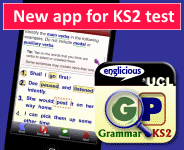National Curriculum KS1 Y2: Composition
Statutory requirements
Pupils should be taught to:
- develop positive attitudes towards and stamina for writing by:
- writing narratives about personal experiences and those of others (real and fictional)
- writing about real events
- writing poetry
- writing for different purposes
- consider what they are going to write before beginning by:
- planning or saying out loud what they are going to write about
- writing down ideas and/or key words, including new vocabulary
- encapsulating what they want to say, sentence by sentence
- make simple additions, revisions and corrections to their own writing by:
- evaluating their writing with the teacher and other pupils
- re-reading to check that their writing makes sense and that verbs to indicate time are used correctly and consistently, including verbs in the continuous form
- proof-reading to check for errors in spelling, grammar and punctuation [for example, ends of sentences punctuated correctly]
- read aloud what they have written with appropriate intonation to make the meaning clear.
Notes and guidance (non-statutory)
Reading and listening to whole books, not simply extracts, helps pupils to increase their vocabulary and grammatical knowledge, including their knowledge of the vocabulary and grammar of Standard English. These activities also help them to understand how different types of writing, including narratives, are structured. All these can be drawn on for their writing.
Pupils should understand, through being shown these, the skills and processes essential to writing: that is, thinking aloud as they collect ideas, drafting, and re-reading to check their meaning is clear.
Drama and role-play can contribute to the quality of pupils’ writing by providing opportunities for pupils to develop and order their ideas through playing roles and improvising scenes in various settings.
Pupils might draw on and use new vocabulary from their reading, their discussions about it (one-to-one and as a whole class) and from their wider experiences.
Welcome!

Englicious is totally free for everyone to use!
But in exchange, we ask that you register for an account on our site.
If you’ve already registered, you can log in straight away.
Since this is your first visit today, you can see this page by clicking the button below.
- Printer-friendly version
- Log in to view or leave comments

